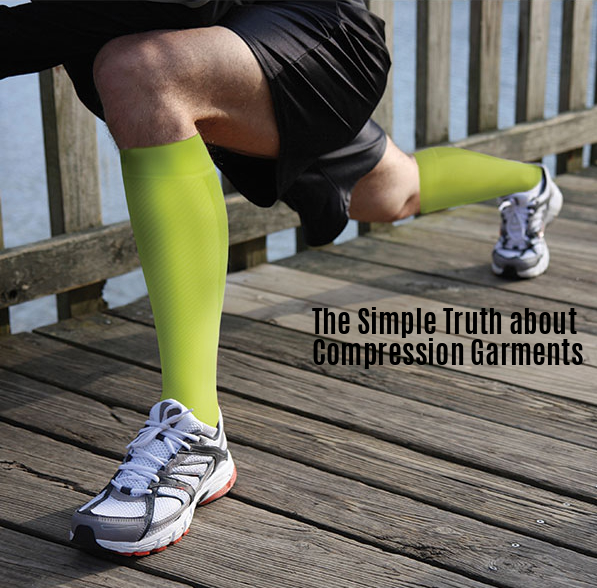The Simple Truth about Compression Garments

I am sure everyone has seen the basketball player with the compression arm sleeve or the marathon runner with the calf compression sleeves. Many of today’s competitive athletes have turned to compression garments in the hopes that they will enhance their performance and/or recovery from whatever grueling event they may be participating in. The simple truth is that science has not found a concrete link between wearing these compression garments and recovery and performance enhancement.
Now, although the evidence may not support the physiological effect of the compression garments, there still remains the impact of the placebo effect. In its simplest definition, the placebo effect is when someone experiences a given outcome based on his or her expectation of that outcome. For example, wearing these compression sleeves on my calves will help me run this race better. Simply by believing in that notion, the runner may experience the psychological impacts and be able to run-what they perceive-as a faster race.
Similar to many treatment options that may be available, there is no magical solution or pedigree for every person to follow. I see athletes of all levels, and if wearing a compression sleeve gives them the positive mental attitude needed to achieve the highest success, I will certainly not stand in their way. It is important to recognize, however, that mobility, stability and strength must also be a part of the training regimen.
There are many types of compression applications out there, including but not limited to arm sleeves, shirts, shorts, pants and socks. They range from moderately priced to expensive machines that claim to facilitate improved tissue healing or inflammation control. While controlling inflammation has long been a staple of the old adage, “RICE” (rest, ice, compression and elevation), studies have shown that the inflammatory process is necessary for proper healing.
While some may argue to the contrary, in terms of the benefits of compression garments, it has not been scientifically proven to enhance performance or the healing process of inflammation. Again, that is just the science part of it. Wearing that sleeve or sock may allow you to feel more confident and dominant in your activity, but it is not a one-stop shop to cure small ailments that may arise from training or sport participation.
This blog is in no way trying to bash compression sleeves, or the truly positive implications of the placebo effect. Rather, it is just an informative piece educating consumers, patients and athletes that compression garments may not be doing what you actually think they are doing. While there is little evidence to support the positive effects, there is no research to say that it is harmful or detrimental to wear them.